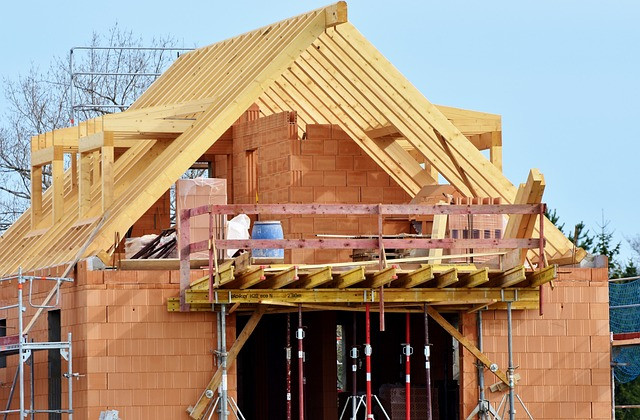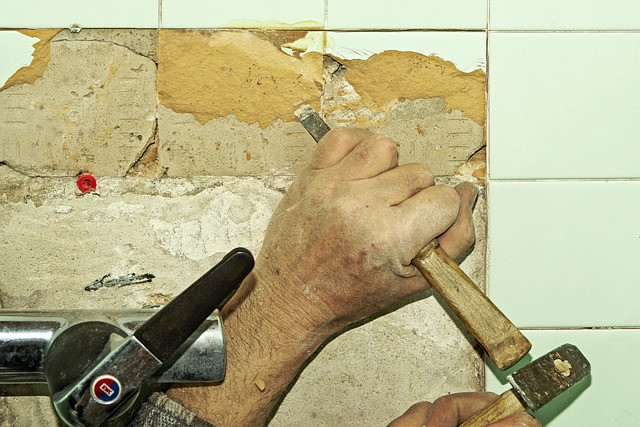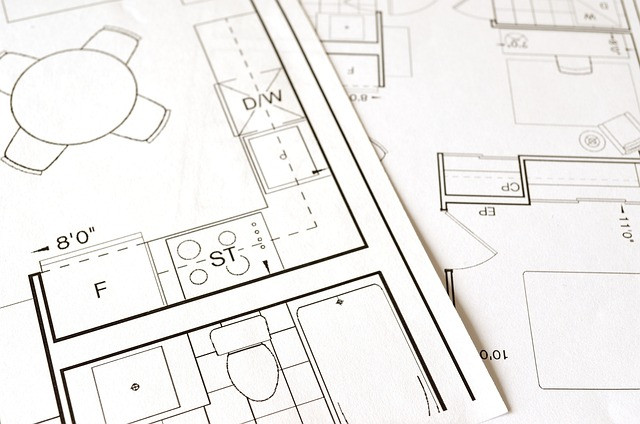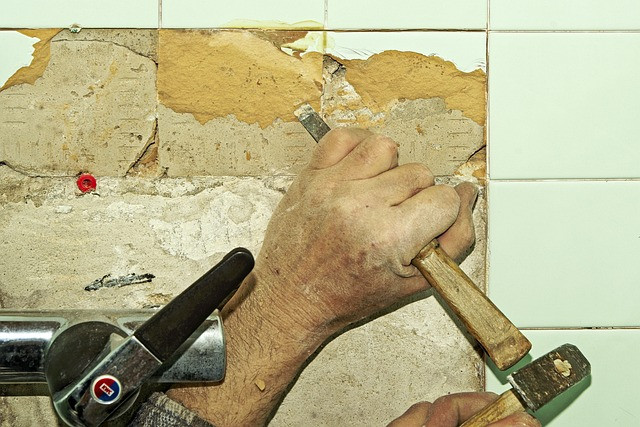
Are you considering a home transformation renovation project but unsure whether to tackle it yourself or hire professionals? Making the right decision requires careful consideration of your skills, budget, time constraints, and legal requirements.
This article will guide you through the process of assessing your abilities, understanding the scope of your project, and weighing the costs and benefits. With thorough knowledge and attention to detail, you’ll be able to make an informed choice that ensures long-term satisfaction and value for your home.

Table of Contents
Assessing Your Skills and Abilities

Assessing your skills and abilities is crucial when deciding between DIY or professional renovation services. It’s important to understand your limitations before embarking on a home improvement project.
Take the time to honestly evaluate your expertise in areas such as plumbing, electrical work, and carpentry. While you may have some basic knowledge, tackling complex renovations without proper training can result in costly mistakes or even safety hazards.
If you find that your skills are limited in certain areas, it might be wise to seek professional advice. Consulting with an experienced contractor can provide valuable insights and guidance for your specific project. They can assess the scope of work required and offer recommendations based on their expertise.
Related Article: Affordable Renovation Services
Understanding the Scope of Your Renovation Project

When planning your home renovations, it’s important to understand the full scope of what needs to be done. Assessing the complexity of your project is crucial in determining whether you should consider professional help.
Take a thorough look at every aspect of the renovation, for example on a bathroom renovation, from structural changes to electrical and plumbing work. Consider if you have the necessary expertise, tools, and time to complete each task successfully.
Assessing project complexity from bathroom renovations, and basement renovation to complete home renovations involves evaluating not only the technical skills required but also the potential challenges that may arise along the way. Are there any building codes or permits that need to be obtained? Will specialized equipment or materials be needed? These are all factors that can greatly impact the difficulty level of your project.
If you find yourself feeling overwhelmed or unsure about any aspect of your home renovation project, it may be wise to consult with a professional. They have the knowledge and experience to handle complex projects efficiently and safely. Hiring a professional ensures that your renovation and the entire process are completed correctly and meet all necessary standards.
Related Article: Luxury Renovation Contractors
Determining Your Budget and Time Constraints

To determine your budget and time constraints for the renovation, it’s important to carefully consider how much money and time you’re willing to invest in the project.
Start by determining the scope of your renovation – what areas of your home do you want to update or change? This will help you understand the extent of work required and estimate costs more accurately.
Next, weigh the benefits and drawbacks of DIY versus hiring professional services. While DIY can save you money, it may also require more time and effort on your part. Consider whether you have the necessary skills and experience to complete the project successfully.
Additionally, think about the quality you desire for your renovation – professionals often provide a higher level of expertise and craftsmanship. Balancing cost savings with quality is key when making this decision.
Related Article: Budget friendly for small kitchen renovation
Considering Safety and Legal Requirements

It’s important to carefully consider safety and legal requirements when planning your complete home renovation project. Ensuring that your renovation meets safety standards and legal compliance is crucial for the well-being of yourself, your family, and future occupants of your home.
Start by researching the specific safety regulations and building codes that apply to your area. These can vary depending on factors such as the type of renovation you’re undertaking and the age of your home.
It’s also important to hire licensed professionals who are knowledgeable about these regulations to ensure that all work is done correctly and up to code. In addition, obtain any necessary permits or approvals from local authorities before beginning construction.
Related Article: Home Renovation Services
Weighing the Costs of DIY Renovation

Consider the expenses involved in doing the renovation yourself, as they can add up quickly. Assessing affordability is an important step in deciding whether DIY renovation is right for you. Take into account the cost of materials, tools, permits, and any unforeseen expenses that may arise during the project. It’s also crucial to consider project complexity before diving into a DIY renovation.
Some projects, such as painting or installing new light fixtures, maybe more manageable for beginners. However, more complex tasks like plumbing or electrical work require specialized knowledge and expertise. To help you assess the affordability and complexity of your DIY renovation project, refer to the table below:
Project
Estimated Cost (DIY)
Complexity
Painting walls
$100 – $500
Low
Installing new light fixtures
$200 – $800
Low
Plumbing repairs
$500 – $1,500+
High
Electrical rewiring
$1,000 – $3,000+
High
Related Article: Complete Renovation Services
Evaluating the Quality and Professionalism of Renovation Services

Now that you have considered the costs of DIY renovation, it’s time to evaluate the quality and professionalism of renovation services.
When deciding whether to hire a professional, it’s important to assess customer satisfaction and measure project success.
One way to evaluate customer satisfaction is by reading online reviews or asking for referrals from friends and family who have used renovation services before. Look for consistent positive feedback regarding the quality of work, communication, and timeliness.
Additionally, measuring project success involves assessing whether the renovations meet your expectations and if they are completed within the agreed-upon timeframe and budget. You can also consider factors like attention to detail, craftsmanship, and how well the contractors address any issues or concerns that arise during the process.
Researching and Choosing Reputable Contractors

When researching and choosing reputable contractors, one important step is to thoroughly review their online portfolio and client testimonials. This will give you a glimpse into their past work and the experiences of previous clients.
Look for contractors who have a diverse portfolio that showcases different types of projects and styles. Pay close attention to the quality of their workmanship, attention to detail, and ability to meet deadlines.
Client testimonials can provide valuable insights into the contractor’s professionalism, communication skills, and overall satisfaction with the project outcome.
In addition to reviewing their online presence, it’s crucial to assess contractors by verifying their qualifications. Check if they are licensed, insured, and bonded. Ask about their experience in similar projects and inquire about any certifications or memberships in professional organizations related to their field.
Comparing Quotes and Negotiating Prices

To ensure you get the best deal possible, it’s important to compare quotes from different contractors and negotiate prices before making a final decision.
When it comes to assessing the market and comparing benefits, gathering multiple quotes allows you to see the range of prices offered by different contractors. This gives you a better understanding of what is considered a fair price for the home renovation services you require.
By comparing these quotes, you can also evaluate the benefits offered by each contractor, such as warranties, only the highest quality of materials used, and additional renovation services provided.
Once you have gathered all the necessary information, don’t be afraid to negotiate with contractors to lower their prices or add extra value to their offer. Negotiating not only helps you secure a better deal but also shows that you are an informed consumer who knows their options.
Ensuring Proper Licensing and Insurance

Make sure you check that the home renovation contractor you hire has the proper licensing and insurance to protect yourself and your property. When it comes to renovating or remodeling your dream home, it’s essential to ensure that the contractor you choose meets all the necessary licensing requirements.
Licensed contractors have undergone specific training and certification processes, demonstrating their expertise in their field. This gives you peace of mind knowing that they have the knowledge and skills needed to complete your project safely and effectively.
Additionally, make sure the home renovation companies or contractor has adequate insurance coverage. This protects you from liability in case of any accidents or damages that may occur during the renovation process. Accidents happen, but with proper insurance coverage, you can rest assured that any unforeseen costs will be covered by the contractor’s policy rather than coming out of your pocket.
So before hiring a contractor for your complete home renovations, remember to verify their licensing status and ask for proof of insurance coverage – it’s a smart move to protect both yourself and your property.
Checking References and Past Work

Checking references and past work is a crucial step in hiring a contractor for your renovation project. It’s important to gather as much information as possible before making a decision.
Start by asking the contractor for a list of customer references. Reach out to these individuals and ask about their experience working with the contractor. Customer reviews and testimonials can provide valuable insight into the quality of their workmanship and professionalism.
Additionally, take the time to evaluate the contractor’s portfolio of past projects. This will give you an idea of their style, attention to detail, and ability to deliver on your specific renovation needs.
Lastly, don’t underestimate the power of word-of-mouth recommendations from friends or family who have had positive experiences with contractors in the past.
Communicating and Collaborating with Professionals

When collaborating with professionals, it’s essential to communicate your expectations and goals for the renovation project. Effective collaboration starts with open and honest communication.
Be sure to clearly express what you want to achieve with your renovation, whether it’s a specific design aesthetic or certain functional improvements. It’s important to find professionals who understand your vision and can work towards achieving it.
Regular check-ins throughout the process will help ensure that everyone is on the same page and any issues can be addressed promptly. Clear communication also involves listening to the professional’s expertise and recommendations, as they bring valuable knowledge and experience to the table.
Managing and Supervising DIY Renovation Projects

To effectively manage and supervise your DIY renovation project, it’s important to stay organized and create a detailed timeline for each task. By managing time constraints, you can ensure that the project stays on track and is completed within the desired timeframe.
Begin by breaking down the renovation into smaller tasks, such as demolition, painting, or installing new fixtures. Assign specific deadlines for each task and prioritize them based on their importance. This will help you stay focused and avoid feeling overwhelmed.
Additionally, documenting progress throughout the project is crucial to keep track of what has been done and what still needs to be accomplished. Take photos or make notes of each step along the way. This not only helps with organization but also provides a sense of accomplishment as you see your progress unfold.
Dealing with Unexpected Challenges and Setbacks

If you encounter unexpected challenges or setbacks during your renovation project, don’t panic – take a step back and assess the situation calmly. Dealing with unexpected problems is a common part of any renovation journey, but with the right mindset and approach, you can overcome these setbacks and continue making progress toward your dream home and space. It’s important to remember that every renovation project will have its own unique set of challenges, so it’s crucial to stay flexible and adaptable throughout the process. To help you navigate through unexpected problems, consider using the following strategies:
Strategies for Overcoming Renovation Setbacks
Benefits
Stay organized and keep a detailed timeline
Ensures tasks are completed on schedule
Seek professional advice when needed
Expert guidance can prevent costly mistakes
Set realistic expectations
Helps manage frustrations when setbacks occur
Maintaining Long-Term Satisfaction and Value

Maintaining long-term satisfaction and value is essential when renovating your space, as it ensures that your investment continues to benefit you in the years to come. To achieve this, focus on maintaining project longevity and maximizing return on investment.
When considering renovation options, it’s important to choose materials and design elements that are durable and timeless. This will help ensure that your space remains aesthetically pleasing and functional for years to come.
Additionally, regular maintenance and upkeep are crucial in preserving the quality of your renovation. By addressing any issues promptly and conducting routine inspections, you can prevent small problems from turning into costly repairs down the line.
Making the Final Decision: DIY or Professional Home Transformation Renovation

Deciding between doing it yourself or hiring a professional for your renovation can be a tough choice, but it’s important to consider factors such as time, skill level, and budget. Assessing your renovation skills is crucial in determining whether taking on the project yourself is feasible. Ask yourself if you have the necessary knowledge and experience to complete the renovation successfully. Additionally, consider any legal requirements that may come with renovating your space.
Certain renovations may require permits or inspections to ensure compliance with building codes and regulations. Hiring a professional can alleviate the stress of navigating these legal obligations. Ultimately, the decision boils down to what you feel comfortable with and what aligns with your vision for the project.
Pros of DIY Home Renovations
Utilize free time
Save money
Improve mental health
The results are exactly how you like it
Sense of accomplishment
Pros of Hiring a Home Renovation Company
Cost-effective
Expertise
Personal satisfaction
Time-saving
Flexibility
Legal compliance
Guaranteed results
Consider this table when making your final decision. It outlines some advantages of both DIY renovation and professional services, helping you weigh your options based on what matters most to you – whether it’s cost-effectiveness, expertise, time-saving, legal compliance, or guaranteed results. Remember that regardless of which route you choose, thorough planning and research are essential for a successful renovation that meets both your needs and legal requirements.
Frequently Asked Questions About DIY Vs. Professional Renovation Services: Which Is Right For You?

Q: Can I start a DIY renovation project without any prior experience or skills?
A: Yes, you can start a DIY renovation project without any prior experience or skills. Starting from scratch may seem daunting, but with the right resources and guidance, you can avoid beginner mistakes and find inspiration in DIY success stories.
Q: What are some common legal requirements that I need to consider before starting a DIY renovation project?
A: Before starting a DIY renovation project, it’s crucial to consider legal requirements such as obtaining the necessary permits and ensuring you have adequate insurance coverage. These steps will help protect you and your property throughout the renovation process.
Q: How can I effectively communicate and collaborate with professionals during a renovation project?
A: To effectively communicate and collaborate with professionals during a renovation project, establish clear goals, provide detailed instructions, and actively listen to their input. Regularly check-in, ask for updates, and address any concerns promptly to ensure a smooth and successful collaboration.
Q: What are some unexpected challenges or setbacks that I may encounter during a renovation project?
A: Unexpected challenges and setbacks during a renovation project can include hidden structural issues, delays in material delivery, budget overruns, and miscommunication with contractors. However, with proper planning and communication, you can overcome these obstacles and complete home renovations.
Q: How can I ensure long-term satisfaction and value from a DIY renovation project?
A: To ensure long-term satisfaction and value from your DIY renovation project, focus on proper maintenance and cost-effectiveness. Regular upkeep and selecting durable materials will help maintain the quality and longevity of your renovations in the years to come.


